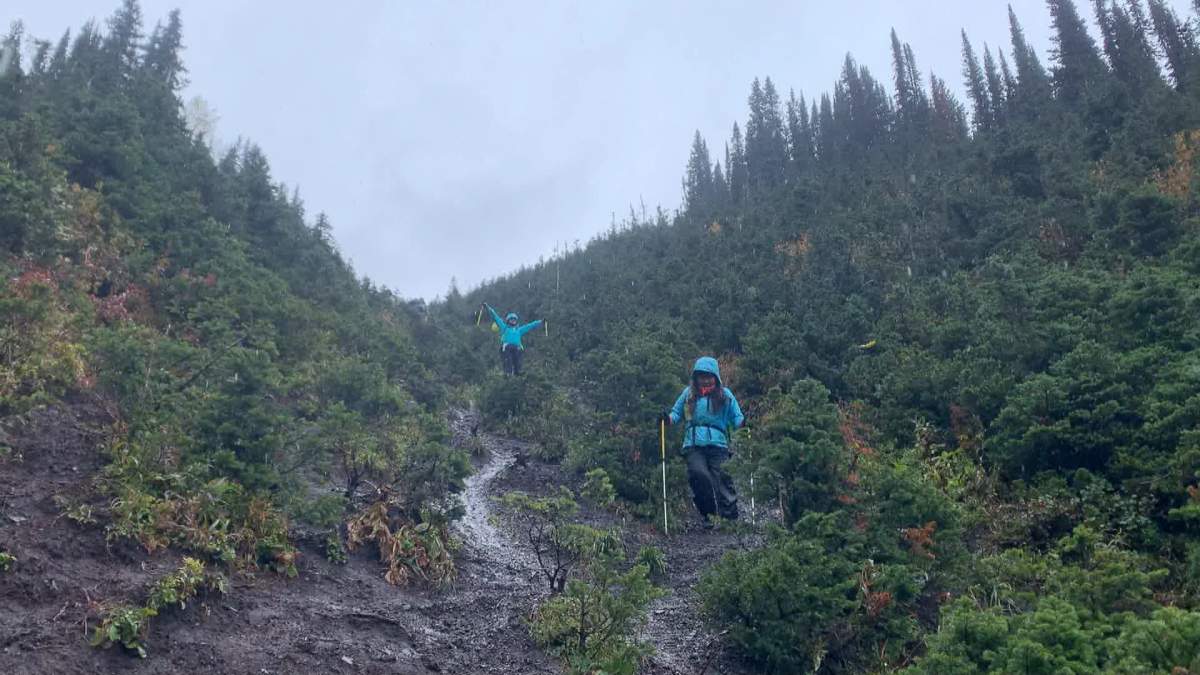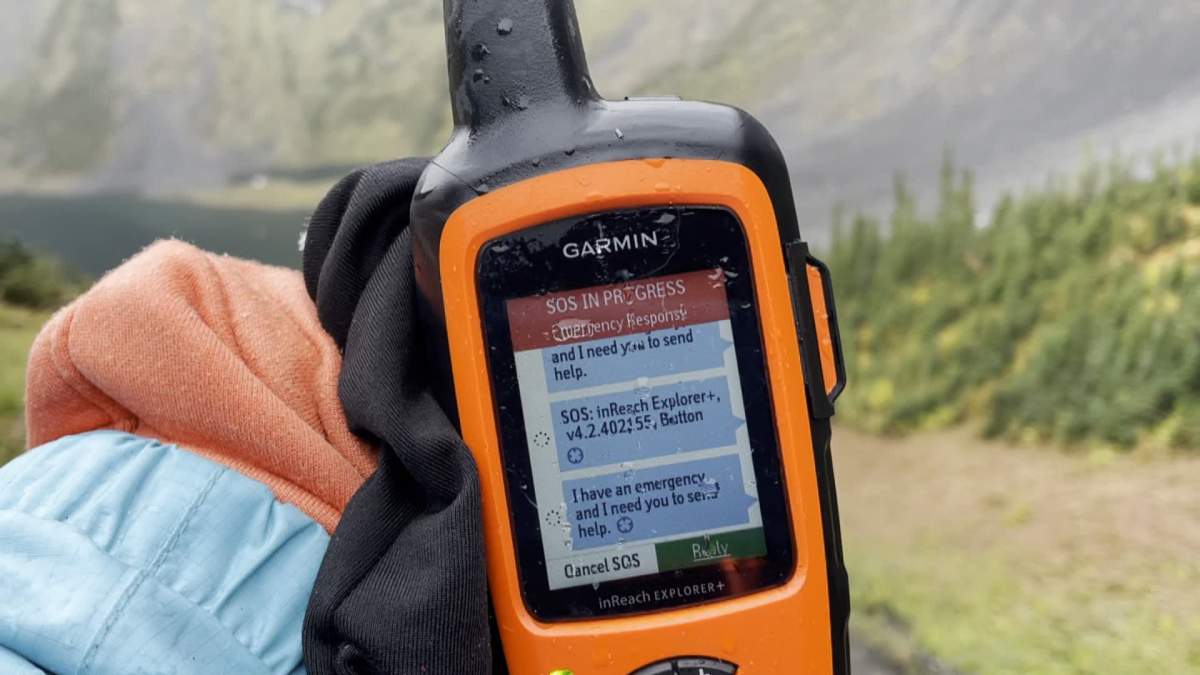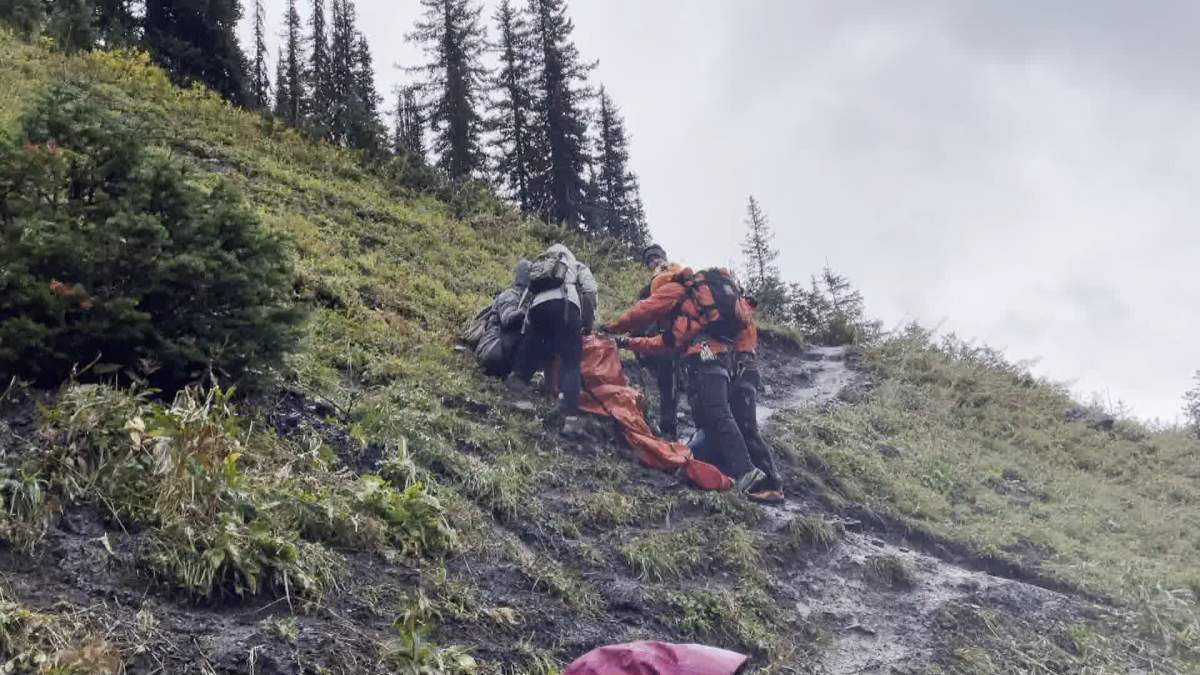A group of Alberta hikers is grateful they’re always prepared after needing to call for a rescue while hiking in Kananaskis last weekend.

Jinky Abad, Lucelie Apostal and two others are frequent hikers in Alberta’s backcountry who pride themselves on being prepared. They always pack extra clothing, a first aid kit and a Garmin beacon device.
While out on a hike on Sept. 18, that preparedness came in handy.
They were on an 11-kilometre hike at Sarrail Ridge in Kananaskis in some less than desirable weather.
“It was raining the whole day, which made the trail challenging for us. Last Saturday was really, really slippery,” said Apostal.
While on the path, they were told a hiker had slipped and hurt her ankle further down.
“When we got to the top, some hikers told us that someone got hurt in the middle of a steep part of the trail,” said Apostal. “We mentioned to them that we have a kind of device that we carry everywhere.”

Get daily National news
The group used their beacon device to call for help.
“It was so dramatic when the helicopter came,” Abad said.
While this specific injury was weather-related, Apostal says she has seen many underprepared hikers on trails around the province.
“There’s a lot of them just wearing runners, wearing shorts. Some of them don’t even wear their jackets, they’re just wearing a garbage bag,” she said. “Most of them are not prepared. For our group, we always make sure that everyone’s prepared.”
Search and rescue teams have been especially busy in the Kananaskis and Rocky Mountain House regions, according to Guy Kerr with Search and Rescue Alberta.
He says the majority of rescues are for minor injuries.
“It’s broken legs and people too cold and a lot of people just don’t know where they are and don’t know how to get out,” he said. “There’s just more people out in the backcountry. Unfortunately, sometimes people don’t prepare themselves properly.”
He says it’s important to have some sort of communications device like a satellite phone, but it’s equally as important to tell someone where you’re going and when you’ll be back.

Kerr also says you should prepare to be out overnight.
“If you break your ankle, if you sprain the ankle, if you tear your knee up and you can’t walk out, what does that look like if you have to stay in that position for two hours, three hours, overnight even?” said Kerr.
“You’re not planning on spending the night out there, but what if you have to spend the night out there?”
It’s advice the group of hikers follows as well.
“Be prepared all the time. Because we never know the situation in the mountains,” said Apostal.




Comments